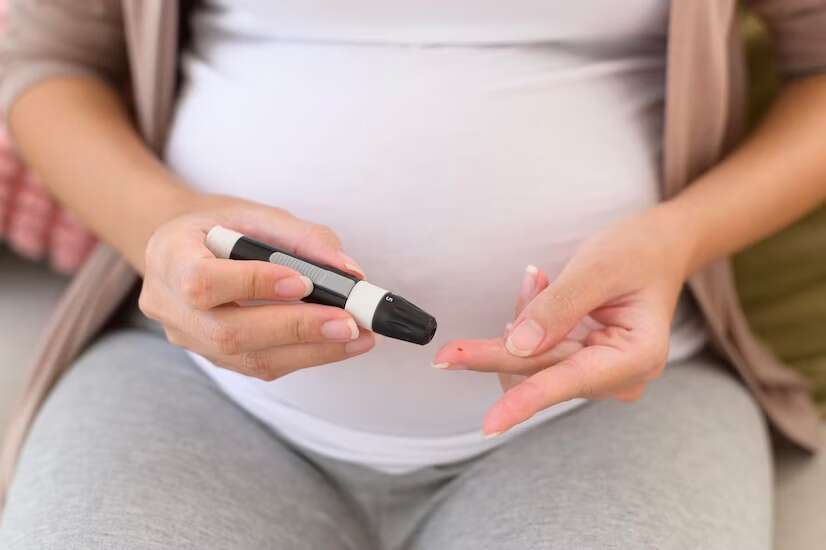Can You Have a Normal Delivery with Gestational Diabetes? Here's What Experts Say

Bringing a new life into the world is an incredible journey, filled with anticipation, joy and its fair share of challenges. One such challenge many expectant mothers face is gestational diabetes, which is marked by high blood sugar levels during pregnancy. This diagnosis can naturally cause anxiety about the birth process. Can a mother with gestational diabetes still have a normal delivery? The good news is that with proper management and care, many women with gestational diabetes can actually experience a safe and natural birth. Let's understand the impact of gestational diabetes on delivery, factors influencing the birth process and expert advice to ensure the best outcome for both mother and baby.

Understanding Gestational Diabetes
Prevalence: Gestational diabetes affects approximately 2-10% of pregnancies in the United States.
Risk factors: include obesity, history of gestational diabetes, family history of diabetes, age over 25, and certain ethnic backgrounds (eg, Hispanic, African-American, Native American, or Asian).
Diagnosis: It is usually diagnosed between 24 and 28 weeks of pregnancy using an oral glucose tolerance test (OGTT).
Management of gestational diabetes
Proper management of gestational diabetes is crucial for a healthy pregnancy and delivery. Dr. Key aspects of management listed by Jain include:
Blood sugar level monitoring: Check your blood sugar level regularly to keep it in the target range.
Healthy diet: Follow a balanced diet rich in fruits, vegetables, whole grains and lean proteins. Limit simple carbohydrates and sugar.
Exercise: Regular physical activity helps control blood sugar levels.
Medication: If diet and exercise are not enough, medication or insulin injections may be needed.
Prenatal Care: Have frequent check-ups with your healthcare provider to monitor the baby's growth and development.

Chances of normal delivery
Facts:
Controlled blood sugar: If gestational diabetes is well controlled, many women can have a normal vaginal delivery. "Proper management reduces the risk of complications such as macrosomia (large baby), which can make vaginal delivery more challenging," said Dr Jain.
Labor Induction: Dr. According to Jain, some women with gestational diabetes may need induction labor before the due date to reduce the risk of complications. This decision depends on the individual health condition and growth of the child.
Close monitoring: During labour, blood sugar levels will be closely monitored. If the blood sugar remains stable, the chances of a normal delivery increase.
Beliefs:
Myth: All women with gestational diabetes need a C-section.
Fact: Not all women with gestational diabetes need a cesarean section. "Many can have a normal vaginal delivery if their blood sugar levels are well controlled and there are no other complications," Dr. Jain said.
Myth: Gestational diabetes always leads to complications during delivery.
Fact: While gestational diabetes can increase the risk of certain complications, proper management can significantly reduce these risks. Many women with gestational diabetes have an easy delivery without major problems.
Potential complications and interventions
Macrosomia: Babies born to mothers with gestational diabetes may be larger than average, which can lead to complications during delivery, such as shoulder dystocia.
Premature birth: High risk of premature birth due to complications from gestational diabetes.
Neonatal hypoglycemia: Babies may have low blood sugar soon after birth and need monitoring.
Intervention:
Cesarean section (C-section): May be recommended if the baby is very large, if the fetus has signs of distress, or if the mother has other complications.
Induction of labor: Inducing labor before the due date can help prevent complications related to macrosomia and reduce the risk of death.
